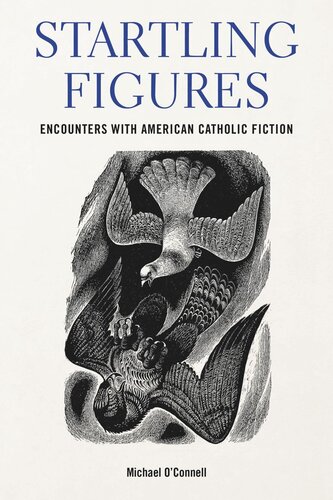

Most ebook files are in PDF format, so you can easily read them using various software such as Foxit Reader or directly on the Google Chrome browser.
Some ebook files are released by publishers in other formats such as .awz, .mobi, .epub, .fb2, etc. You may need to install specific software to read these formats on mobile/PC, such as Calibre.
Please read the tutorial at this link: https://ebookbell.com/faq
We offer FREE conversion to the popular formats you request; however, this may take some time. Therefore, right after payment, please email us, and we will try to provide the service as quickly as possible.
For some exceptional file formats or broken links (if any), please refrain from opening any disputes. Instead, email us first, and we will try to assist within a maximum of 6 hours.
EbookBell Team

4.1
100 reviewsStartling Figures is about Catholic fiction in a secular age, and the rhetorical strategies Catholic writers employ to reach a skeptical, indifferent, or even hostile audience. Although characters in contemporary Catholic fiction frequently struggle with doubt and fear, these works retain a belief in the possibility for transcendent meaning and value beyond the limits of the purely secular. Individual chapters include close readings of some of the best works of contemporary American Catholic fiction, which shed light on the narrative techniques that Catholic writers use to point their characters, and their readers, beyond the horizon of secularity and towards an idea of transcendence, while also making connections between the widely acknowledged twentieth-century masters of the form and their twenty- first-century counterparts.
This book is focused both on the aspects of craft that Catholic writers employ to shape the reader’s experience of the story, and also the effect the story has on the reader. One recurring theme that is central to both is how often Catholic writers use narrative violence and other, similar, disorienting techniques, in order to unsettle the reader. These moments can leave both characters within the stories and the readers themselves shaken and unmoored, and this, O'Connell argues, is often a first step towards the recognition, and even possibly the acceptance, of grace. Individual chapters look at these themes in the works of Flannery O’Connor, J. F. Powers, Walker Percy, Tim Gautreaux, Alice McDermott, George Saunders, and Phil Klay and Kirstin Valdez Quade.
This book makes connections between the well-studied area of twentieth-century American Catholic literature to the less-well-covered field of contemporary American Catholic fiction, showing a number of surprising connections as well as ways that field has developed.